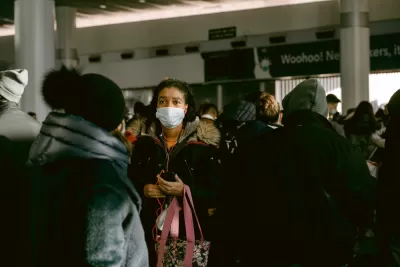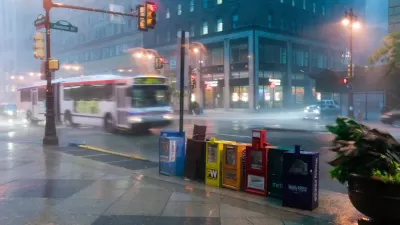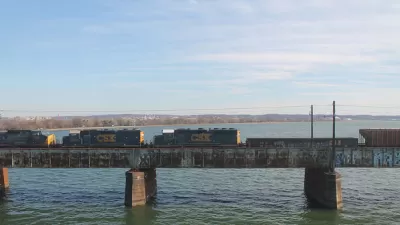Jarrett Walker and Mathew Yglesias discuss one of the great quandaries of 21st century transit planning—how to increase cost effectiveness and ridership while also ensuring equity and service for underserved communities.

Jarrett Walker recently wrote a blog post to explain a few of frequently misunderstood concepts about transit service design, namely that 1) ridership is not very predictable and 2) low-ridership service is sometimes justified.
Walker’s post is written in response to a recent Slow Boring post by Matthew Yglesias that called on U.S. transit agencies to start prioritizing ridership above other goals as the “only way to get costs under control” (the high costs of transit in the United States being a well documented, if still little-understood, hindrance to non-automotive travel in the country). The argument, in tl:dr form: “Telling agencies to prioritize ridership would result in ridership going up, and over time, it would also create an agency culture focused on improving ridership and learning what strategies do and do not work.” Yglesias even cites Walker’s book, Human Transit, to describe the ridership-coverage tradeoff central to Walker’s approach to transit service design.
Walker, after describing Yglesias’s writing on transit generally as more thoughtful than most pundits in the United States (such as Elon Musk, for example), sets the record straight about ridership:
You will never hear me say, as Yglesias does, that ridership should be the only goal of a transit service, and not just because I’m a consultant who facilitates conversations on the topic. I won’t say that because the decision is genuinely hard, and there are some good policy reasons for coverage services.
For example, writes Walker, the suburbanization of poverty has left many low-income riders without transit service: “A strictly ridership-based approach would not go to a lot of those places, but will put lots of service in dense inner cities that happen to be increasingly gentrified. The result can be something that is measurably inequitable by both race and income.” To describe the uncertainties of ridership, Walker writes, “Actual ridership is affected by lots of unpredictable external events (pandemics, economic conditions, etc), but access to opportunity is the constant thing that transit provides that is the foundation of ridership.” When it comes to service design, Walker argues that access to opportunity is a more effective consideration.
More on the nuances of the ridership-coverage tradeoff are included in the source article below.
FULL STORY: Just “Prioritize Ridership”: Is it That Easy?

Maui's Vacation Rental Debate Turns Ugly
Verbal attacks, misinformation campaigns and fistfights plague a high-stakes debate to convert thousands of vacation rentals into long-term housing.

Planetizen Federal Action Tracker
A weekly monitor of how Trump’s orders and actions are impacting planners and planning in America.

San Francisco Suspends Traffic Calming Amidst Record Deaths
Citing “a challenging fiscal landscape,” the city will cease the program on the heels of 42 traffic deaths, including 24 pedestrians.

Bend, Oregon Zoning Reforms Prioritize Small-Scale Housing
The city altered its zoning code to allow multi-family housing and eliminated parking mandates citywide.

Amtrak Cutting Jobs, Funding to High-Speed Rail
The agency plans to cut 10 percent of its workforce and has confirmed it will not fund new high-speed rail projects.

LA Denies Basic Services to Unhoused Residents
The city has repeatedly failed to respond to requests for trash pickup at encampment sites, and eliminated a program that provided mobile showers and toilets.
Urban Design for Planners 1: Software Tools
This six-course series explores essential urban design concepts using open source software and equips planners with the tools they need to participate fully in the urban design process.
Planning for Universal Design
Learn the tools for implementing Universal Design in planning regulations.
planning NEXT
Appalachian Highlands Housing Partners
Mpact (founded as Rail~Volution)
City of Camden Redevelopment Agency
City of Astoria
City of Portland
City of Laramie





























